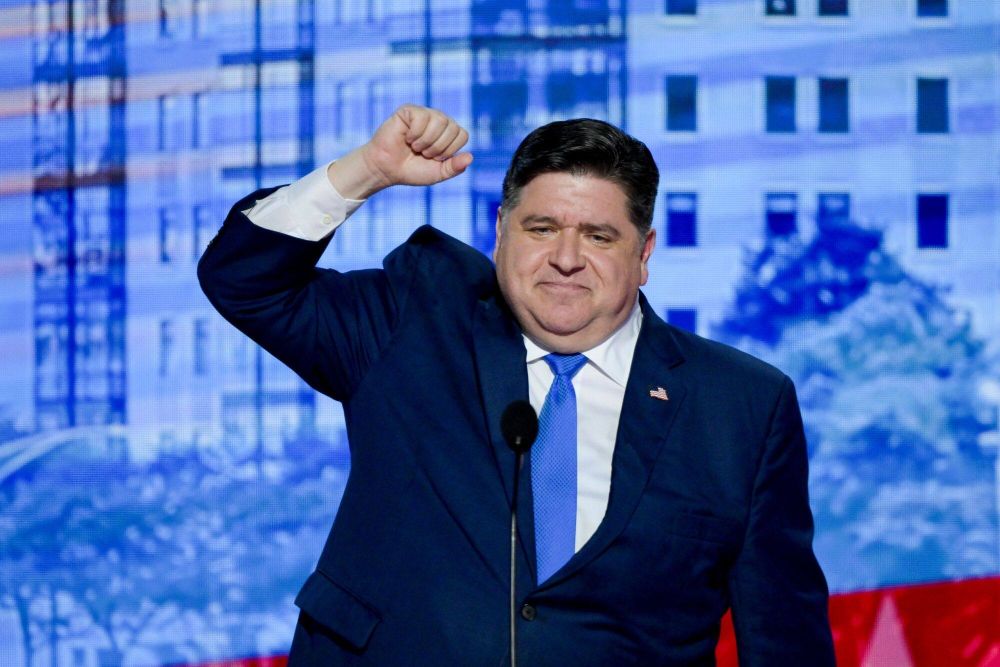Pritzker Signs Two Illinois Gun Safety Bills as Chicago Crime Falls
Governor JB Pritzker signed two new crime-focused laws on July 28, 2025, aimed at improving gun safety and data-sharing across police departments in Illinois, coinciding with a notable drop in shootings and homicides in Chicago.
On Monday, July 28, 2025, Illinois Governor JB Pritzker enacted a pair of legislative measures focused on crime reduction and enhanced gun safety protocols across the state.
The announcement came after yet another summer weekend in Chicago marked by continued declines in violent crime. Comparatively, the final weekend of July in 2023 recorded 47 people shot in the city, while the same weekend in 2025 saw that figure reduced to 21—less than half. Similarly, homicides in the last week of July dropped from five in 2023 to two in 2025.
Asked about the cause of these reductions, Governor Pritzker responded, "It's hard to pinpoint," noting that while Chicago’s homicide rate has fallen by 3% compared to last year, shootings are down 40%, and carjackings have seen a 50% decrease.
The governor’s newly signed legislation includes two key laws. The first, SB 0008—referred to as the Safe Gun Storage Act—introduces stricter requirements for securing firearms, aiming to prevent access by minors, high-risk individuals, and those legally barred from possession. The statute mandates that lost or stolen firearms be reported within 48 hours, shortening the previous window of 72 hours. Civil penalties will apply for violations, and reporting obligations for missing firearms have also been reinforced.
"This is a commonsense measure that has been shown to significantly reduce gun deaths, suicides, and accidental shootings," Pritzker said at the bill signing.
The second law, HB 1373, intensifies efforts to track firearms used in crimes or recovered at crime scenes. It requires all law enforcement agencies in Illinois to utilize the federal eTrace system, aiming for uniformity in gun tracing procedures across jurisdictions.
Illinois Attorney General Kwame Raoul credited these improvements in public safety to increased investment in violence interruption strategies.
"A hundred million dollars for violence interruption — that works," said Raoul. "It works."
Violence interrupters are trusted individuals placed within high-conflict communities to mediate and diffuse potential confrontations before they escalate.
John Roman of the National Opinion Research Center at the University of Chicago offered another perspective. He connected the drop in violence to staffing changes in local governments following the COVID-19 outbreak.
According to Roman, "The number of local government employees across the country fell by more than a million in three months — March to May 2020 — and it has been slowly coming back ever since," adding that current staffing levels now exceed those seen prior to the pandemic. He suggested the rise in government employment aligns with falling crime rates nationwide.
Roman also pointed to targeted funding for violence interruption programs and data-informed policing as contributing factors to the accelerated decline.
"I mean, crime decline has been so rapid that it's hard to imagine it continues at this pace," he remarked.
While cities across the U.S. are experiencing reduced violence, Chicago is reportedly among those leading the trend. As a result, various officials have claimed credit for the improvements.
Roman acknowledged, "At this point, those officials can take any credit they want as long as the drop in crime continues."
In other legislative developments Monday, no movement occurred on SB 1899, a bill aimed at streamlining the process for lower-level gun offenders in Illinois to regain Firearm Owners Identification (FOID) cards. The proposal would allow individuals with minimal gun-related charges to participate in court-approved diversion programs in lieu of prosecution. Upon completion and with a judge’s endorsement, they could then request a FOID card. The Illinois State Police would be instructed to issue the card once the related felony charge is dismissed.
Although the measure has been passed by the Illinois General Assembly and has backing from the Cook County State's Attorney’s Office, it still awaits action on Governor Pritzker’s desk.

COMMENTS (0)
Sign in to join the conversation
LOGIN TO COMMENT